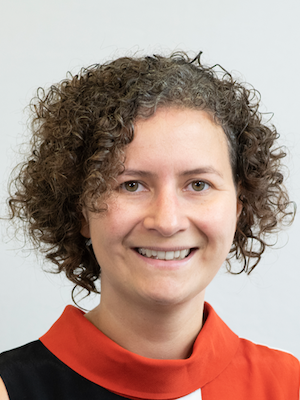In my day job, I am a data science educator, spending most of my time designing and delivering teaching in a university context. I have an amazing team of colleagues who work in similar roles, and we spend lots of time talking about how best to teach coding. We also love to talk to people from outside of our team - to learn about how they teach, and to share some of our tried and tested practices. This is how the University of Edinburgh Pair Programming Group was born, and it has been a vibrant community for over 3 years now. But, why stop there? Why not engage the wider community and bring together people from further out in the UK and beyond? Well, indeed, why not?
When I was applying for the SSI Fellowship back in 2022, this event was not in my proposal. Even in my wildest dreams, I didn’t think it could be pulled off - a full-day hybrid event about teaching programming, attended by over 60 in-person and about 50 online participants, featuring 5 keynote speakers and 20 presentations, delivered as a collaboration between 3 organisations. The unbelievable thing is that the idea was born on one cold October evening in 2023, and came to fruition on 11th January 2024 - with about 3 months lead time. Yes, we did it, thanks to an extremely effective collaboration between about 10 infinitely capable and enthusiastic colleagues, high-quality infrastructure provided by the University of Edinburgh, and just under £2000 of funding (some provided as part of my SSI Fellowship).
I won’t focus this blog post on the programme of the event - I will just say that it was focused on teaching programming to non-programmers (i.e. outside of Computer Science or Informatics departments). You can see the full programme (including slides and eventually videos) HERE. What I will focus on instead are my high-level learnings from the event - both as a co-organiser and as an attendee.
 Organisers in a joyful mood as we welcomed 110+ participants |
The size of the community
When we sent the initial call for event participants, we weren’t sure whether we should expect 10 or a 1000 responses. We had no idea about the number of people who are interested in teaching programming to non-programmers, and how many of them we could reach through our networks. We ended up receiving just under 150 responses. I am confident, however, that the next call would attract many more - we only advertised for about 3 weeks, and I’m sure there are networks that we didn’t manage to reach.
The spirit of the community
Out of the 147 initial notes of interest, about 110 people participated on the day. In marketing speak, this is called conversion rate, and I think ours was remarkable, especially considering that this was a free event (i.e. didn’t require a financial commitment), taking up a full day during a period that is for many academics very busy with teaching. The people who did participate gave it their all - there was a tangible buzz in the room during the sessions, lots of great conversations happening over lunch, and a great atmosphere in the Zoom chat room. Of the 60 in-person participants, 40 stayed for a networking reception after the event, and a further 20 stayed for pizza and more chats. Two of the keynote speakers, Olivia Guest and Sam Forbes, are SSI Fellows as well, and I have to confess that this fact helped me get the courage to approach them and ask for a talk. They were lovely and enthusiastic and gave a talk about inclusivity in coding, which I think is key to teaching programming anywhere.
 Keynote lecture about to start |
The future of the community
During the event, I pitched the idea of writing an edited volume about teaching programming to non-programmers, and in true Collaborations Workshop spirit, I invited people to add their potential contributions to a shared Google spreadsheet. We have about 40 ideas there, and over the next months, we’ll be working to put together a book proposal and start the project. One of the keynote speakers suggested a hackathon to get us started, and I think this is a wonderful idea that we’ll try to implement. In the event feedback, we received lots of requests to run similar events in the future, and to make them longer, perhaps extending over 2 days. We would love to do this - it will largely depend on funding and capacity in the team. Overall, this was an amazing event that brought the community together and will definitely result in a set of extended collaborations.
 Pair programming in action |

